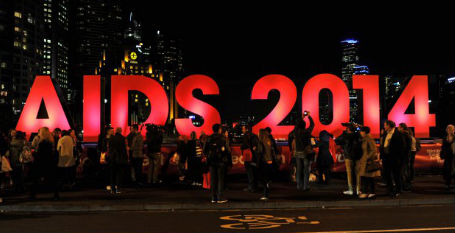India gay rights activist Ashok Kavi told the biennial five-day meeting gathering of 12,000 AIDS activists, scientists and people living with HIV of the “incredible sense of despondency” after India’s Supreme Court reinstated a ban on gay sex in December.
This came after a four-year period of decriminalization of same-sex relations that had helped bring the gay community into the open in the socially conservative country.
Gay people continue to face a social stigma in India, where hugging, kissing and any form of public display of affection by even straight couples is strongly frowned upon.
The gay, lesbian and bisexual community in India is facing severe constraints, waging a legal battle to do away with the British colonial-era “Section 377” law that describes same-sex relations as “unnatural” and punishable with life imprisonment.
South Asian countries such as India along with Sri Lanka, Pakistan, Bangladesh, Myanmar have retained the British colonial-era law even after independence.
Manisha Dhakal, a Nepalese transgender activist, said certain laws in Nepal – while not criminalizing transgender sex workers – were deliberately used against them.
“When we are walking in the street, people are gathered to see us and there are traffic jams because the taxi drivers also want to see us,” Dhakal said, adding that the commotion often ended in arrest under the Public Offences Act.
“We know that criminalization is bad health policy. It is bad public policy. It doesn’t work to prevent the spread of disease. In fact, it does just the opposite,” the US ambassador to Australia, John Berry, told the session.
“The global fight against HIV and AIDS will not be won by relegating segments of the population to the shadows.”
According to the World Health Organisation, female sex workers are 14 times more likely to have HIV than other women, gay men are 19 times more likely to have HIV than the general population, and transgender women are almost 50 times more likely than other adults to have HIV.
Yet the same groups are least likely to get HIV prevention, testing and treatment services, WHO says.
In 116 countries prostitution is illegal and in 78 countries same-sex relations are a criminal offence.

